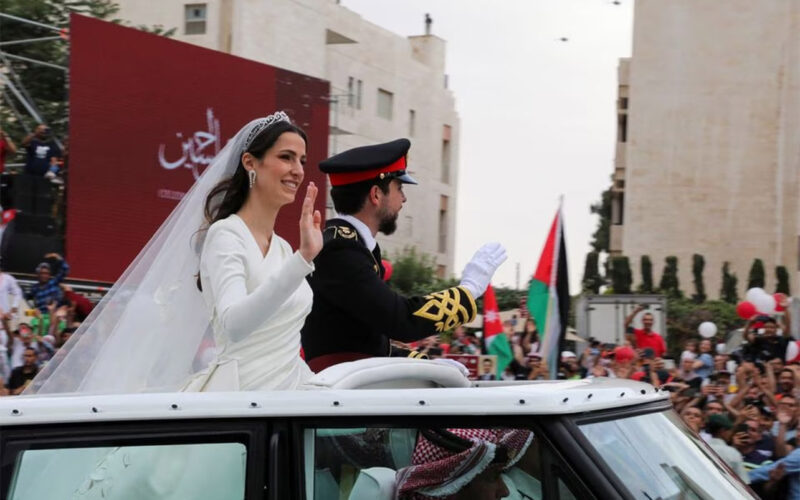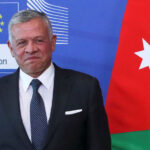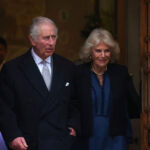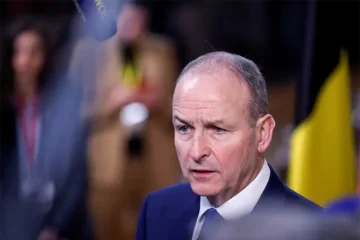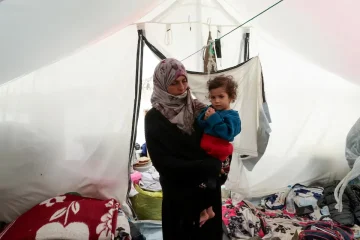[tta_listen_btn listen_text=”Audio” pause_text=”Pause” resume_text=”Resume” replay_text=”Replay”]
THE heir to Jordan’s throne will marry amid much fanfare, in a glittering ceremony that the country’s leaders, long backed by the West as a stabilising influence in a volatile region, hope will reinforce local and global alliances.
The 28-year-old Prince Hussein, named as heir by his father King Abdullah in 2009, will tie the knot with Saudi architect Rajwa Al Saif, 29, who hails from a prominent family with links to her country’s ruling dynasty.
Jordan has long relied on Western support to shore up its economy, one of the world’s biggest per capita recipients of U.S and European aid, and observers hope the wedding will also bring it closer to the regional powerhouse on its southern border.
Saudi Crown Prince Mohammed bin Salman is expected to attend, Jordanian officials say, and the banquet tables will be studded with European and Asian royalty and senior U.S. figures too, including U.S. First Lady Jill Biden and Britain’s Prince and Princess of Wales, William and Kate.
Prince Mohammed last visited Jordan a year ago following years of tensions, also prompting hopes then that warmer ties would unlock more fulsome economic support.
The wedding is also a milestone in Hussein’s path towards the monarchy, with officials and insiders saying King Abdullah feels more confident that his country’s prized stability will now be cemented.
The King had removed his younger half-brother Hamza as heir-designate in 2004.
Hamza was later accused of conspiring to overthrow the monarch in a foreign-inspired plot, but Jordan has not seen the upheavals that toppled neighbouring leaders and escaped relatively unscathed from the turmoil witnessed in the region in the last decade.
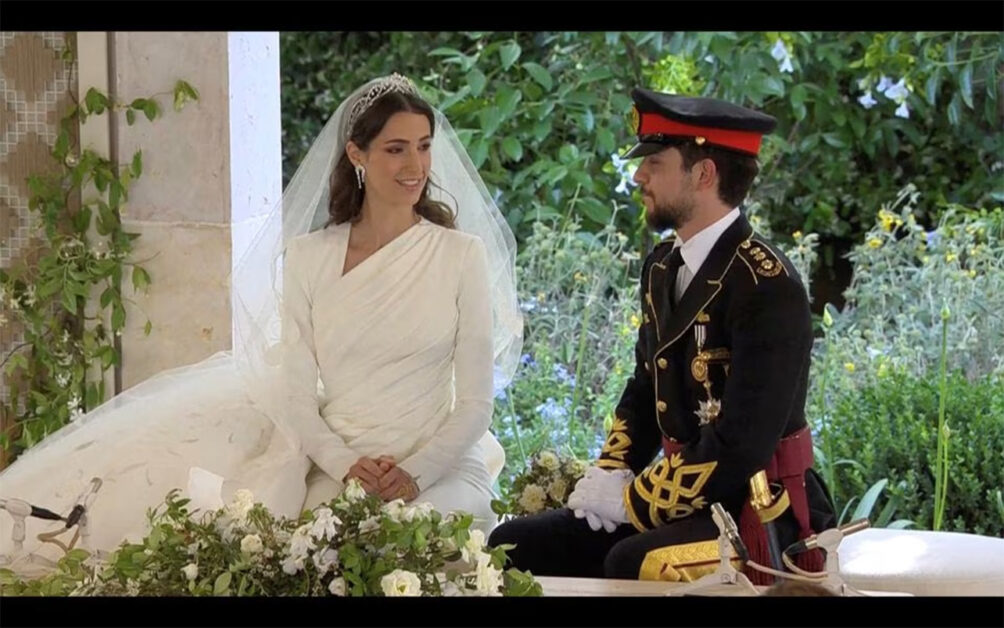
KING-IN-WAITING
In recent years, Hussein, a U.S.-educated graduate of Georgetown and a Sandhurst officer, has increasingly taken on the duties of a future king in the country of 11 million, rubbing shoulders with world leaders including U.S. President Joe Biden.
Advertisement · Scroll to continue
At the Arab League summit in Jeddah last month, he walked alongside his father to greet Crown Prince Mohammad. The three were photographed together. At home, Hussein is regularly seen chairing meetings of government agencies.
In line with the customs of the Hashemite family, who claim descent from the Prophet Mohammed and ruled Mecca for centuries, the public ceremonies will begin as Hussein and his bride tie the knot in Amman’s Zahran palace.
Jordanians will get a glimpse of their future king and queen as their convoy takes a ten-kilometre (six-mile) route through the city streets under heavy security.
Despite its imperfections, many Jordanians say they prefer the continuity of their country’s political system, noting the years of conflict that have ravaged neighbouring Iraq and Syria.
“For us, the Hashemites are a safety valve,” said Alia Ibrahim, a teacher in a private school in Amman.
Washington’s desire for a stable ally in an otherwise volatile region meant it too has often turned a blind eye to Jordan’s slow democratic reforms and mixed human rights record. The U.S. maintains military bases in Jordan and conducts regular joint training exercises.
The kingdom is slowly recovering after years of sluggish growth and high unemployment under the latest of many International Monetary Fund programmes.
Still, many have staged protests over a cost-of-living squeeze, including deadly riots last year over rising fuel prices, and some criticise the prince’s wedding as a waste of public resources.
“How can we be happy when we are struggling to improve our daily lives? It’s the prince’s wedding, not ours,” said Abdullah al-Fayez, a retired serviceman living on slim savings on the outskirts of Amman.

